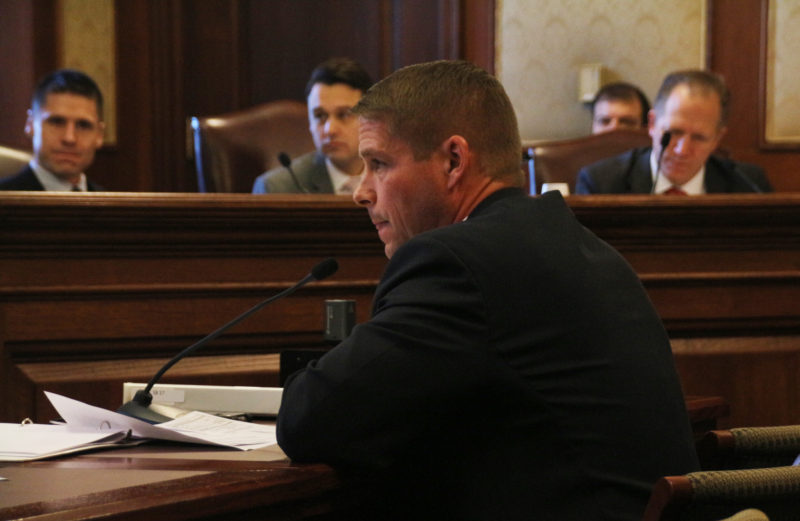JEFFERSON CITY, Mo. – Sen. Will Kraus, R-Lee’s Summit, presented two bills to the Senate Ways and Means Committee aimed at cutting taxes for corporations in the state. One was supported well by those who came to Jefferson City to testify, and one was not.
First, SB 16 garnered praise from business organizations around the state for how it will make delivery charges exempt from the sales and use tax. The need for the bill, Kraus said, came from a Missouri court case last year that determined the charges for delivery of a rented crane from Alberici Constructors, Inc. could be taxed because the cost to deliver the crane was intended to be part of the crane rental.
However, the Department of Revenue does not currently aggressively tax delivery charges on the businesses who ship goods nor on consumers who purchase them. Business groups worried the decision of the case caused too much confusion as to exactly what could be taxed.
Mike Sutherland of the Missouri Budget Project concurred with those groups.
“Our revenue system needs to be consistent and understandable so taxpayers have confidence,” he said.
Kraus’ other bill did not receive as warm a welcome. SB 17 seeks to eliminate Missouri’s corporate income tax after a three-year phase out. Missouri’s current corporate income tax rate of 6.25 percent hovers at about the middle of the country’s range. Iowa has the highest corporate income tax rate at 12 percent while six states have not corporate income taxes. Yet, that tax accounts for 3.2 percent of net revenue, just under $300 million.
Kraus argued the phase-out of any corporate income tax will draw large businesses to the state.
“The growth of our state has fallen behind other states,” he said. “We really need to focus on what we can do to improve our economy and bring jobs to our state. One of the easiest ways to make Missouri more competitive is to eliminate the income tax.”
However, Sen. John Rizzo, D-Kansas City, raised concerns eliminating the tax outright could cause significant revenue problems like those happening in Kansas after Gov. Sam Brownback’s tax cuts. He noted that with more withholds on the way after former Gov. Jay Nixon has already withheld millions, it could be unwise to consider further cuts as revenue has already begun to suffer.
The bill’s sponsor downplayed the fiscal note of $500 million, saying it could go lower.
Advocacy groups from education and mental health also opposed the measure. The Missouri branch of the National Education Association and a mental health advocate noted they bill could have dire consequences for education and mental health.
“When revenue declines or is flat and general revenue is looked at for withholdings, there are four areas that get targeted: DESE, Higher Education, Corrections, and Mental Health,” Brent McGinty, the president and CEO of the Missouri Coalition for Community Behavioral Health Care, said. “We are afraid this will be the unintended consequence of this bill.”
Only the Associated Industries of Missouri testified on behalf of the bill, noting its effects could be reversed and it avoided using a complex, potentially damaging “hybrid tax,” like the gross receipts tax used in Texas and other states.











